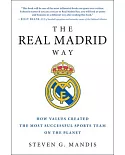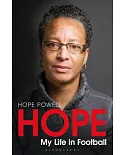From Accra and Algiers to Zanzibar and Zululand, Africans have wrested control of soccer from the hands of Europeans, and through the rise of different playing styles, the rich rituals of
spectatorship, and the presence of magicians and healers, have turned soccer into a distinctively African activity. African Soccerscapes explores how Africans adopted soccer for their
own reasons and on their own terms. The Conf矇d矇ration Africaine de Football democratized the global game through antiapartheid sanctions and increased the number of African teams in the World
Cup finals. The unfortunate results of this success are the departure of huge numbers of players to overseas clubs and the influence of private commercial interests on the African game. But
the growth of the women’s game and South Africa’s hosting of the 2010 World Cup also challenge the one-dimensional notion of Africa as a backward, “tribal” continent populated by victims of
war, corruption, famine, and disease.





















